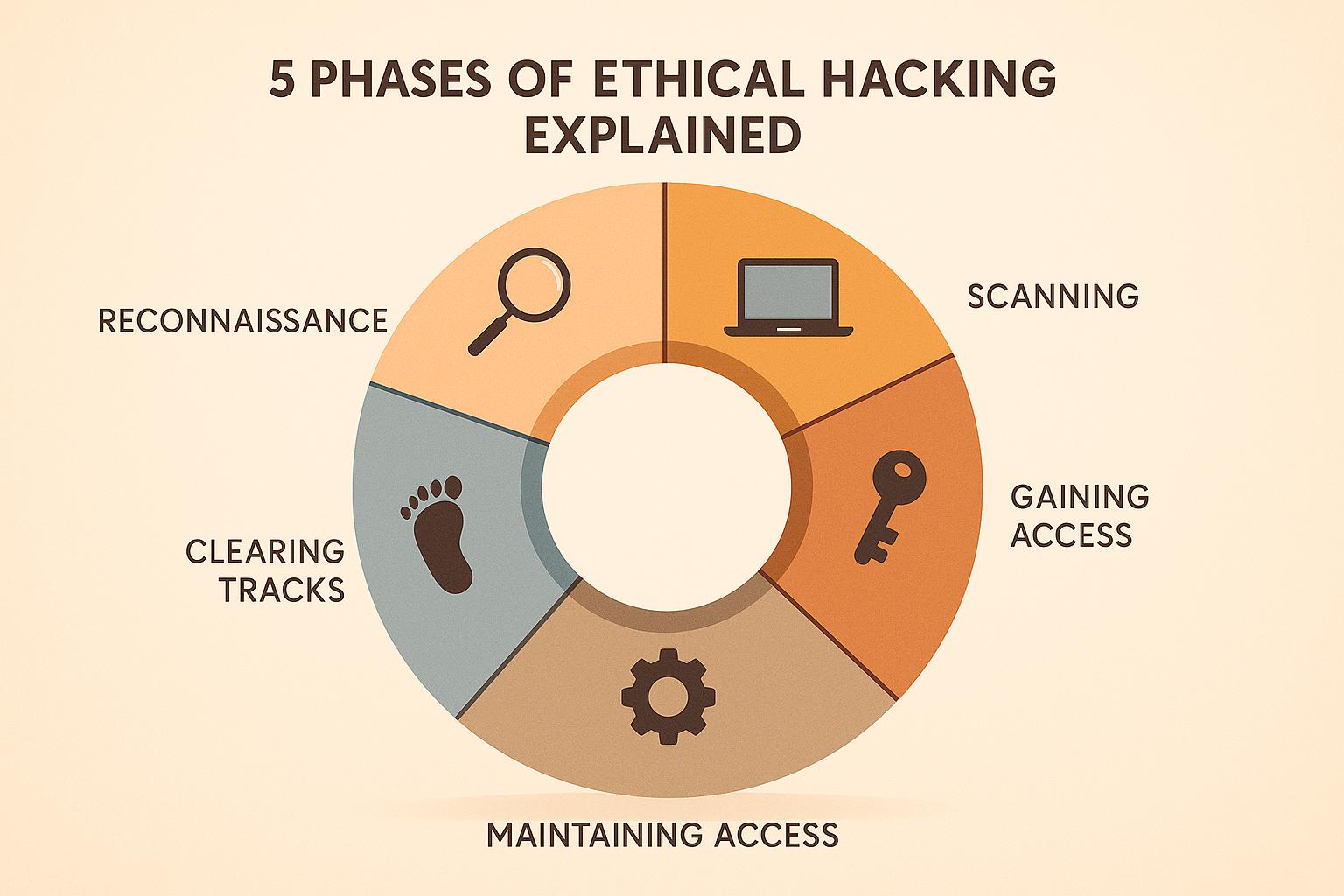Cybersecurity offers two main career paths: working for a vendor or as a practitioner. Here’s a quick breakdown to help you decide:
- Vendor Path: Focuses on creating, selling, and supporting cybersecurity products. Roles include business development, product management, and customer success. Certifications like Cisco CCNA or AWS Certified Security are often required. Salaries range from $110,000 to $245,000+.
- Practitioner Path: Involves hands-on security work to protect an organization’s infrastructure. Roles include security analyst, penetration tester, and incident responder. Vendor-neutral certifications like CompTIA Security+ or CISSP are common. Salaries range from $70,000 to $225,000+.
Both paths are in high demand, with cybersecurity jobs projected to grow by 33% from 2023 to 2033. Your choice depends on whether you prefer working with clients and products (vendor) or directly safeguarding systems (practitioner). Let’s dive deeper into each path.
Quick Comparison:
| Aspect | Vendor Path | Practitioner Path |
|---|---|---|
| Primary Focus | Selling and supporting security solutions | Protecting a single organization’s systems |
| Certifications | Vendor-specific (e.g., AWS, Cisco CCNA) | Vendor-neutral (e.g., CISSP, Security+) |
| Roles | Sales, product management, customer success | Analyst, engineer, incident response |
| Salary Range | $110,000 - $245,000+ | $70,000 - $225,000+ |
| Work Style | Client-facing, business-driven | Hands-on, technical, operational |
Your decision should align with your skills, interests, and long-term goals.
Best Vendor and Neutral Cloud Certs AWS vs CompTIA 2024

Vendor Career Path: Roles, Skills, and Opportunities
The vendor side of cybersecurity opens up a range of specialized roles that go beyond traditional security jobs. These positions focus on creating, selling, and supporting security products and services, offering professionals diverse avenues for career growth within the industry.
Common Vendor Roles
Cybersecurity vendors offer several career tracks, each suited to different skill sets and interests:
- Business Development Professionals: These individuals identify market opportunities and build strategic partnerships. They work closely with clients to understand their security needs and position relevant solutions. Success in this role requires strong relationship-building skills and a solid understanding of both technology and business strategy.
- Software Engineers: Engineers in this field design and maintain cybersecurity products, tackling everything from threat detection algorithms to user-friendly interfaces. Staying ahead of emerging security threats is key to developing effective solutions.
- Customer Success Managers: Acting as the link between the vendor and its clients, these professionals help customers implement security solutions, provide ongoing support, and ensure they achieve their desired outcomes. This role blends technical expertise with excellent communication and problem-solving skills.
- Sales Professionals: These experts focus on showcasing the value of security solutions to potential clients. They need to translate complex technical concepts into terms that decision-makers, who may not have deep technical knowledge, can understand. This role often comes with high earning potential.
- Product Managers: They oversee the development and lifecycle of cybersecurity products. By collaborating with engineering teams, gathering customer feedback, and making strategic decisions, product managers ensure products align with market needs. They essentially act as the voice of the customer within the company.
These roles highlight the variety of opportunities available in the vendor space, catering to both technical and non-technical professionals.
Required Skills and Certifications
Success in vendor-side roles often hinges on a mix of vendor-specific and vendor-neutral certifications that validate expertise and knowledge.
- Vendor-Specific Certifications: These demonstrate in-depth expertise with particular platforms or technologies. Notable examples include Cisco CCNA and Fortinet NSE certifications.
- Vendor-Neutral Certifications: These provide a broader foundation of knowledge applicable across various tools and platforms. Popular options include CompTIA Security+ (priced at $404) and CompTIA Network+.
Certification costs can vary widely. Entry-level certifications like SSCP cost around $249, while more advanced credentials like CEH range between $950 and $1,199. Premium certifications, such as GCIH and GSEC, are priced between $979 and $1,299. Choosing the right certifications requires research, as different organizations may prioritize different credentials. Reviewing job postings from target employers can help identify the most relevant qualifications.
Certifications carry significant weight in vendor organizations. A reported 72% of cybersecurity professionals are required to hold certifications, as these credentials validate knowledge of industry-standard processes and techniques. They not only demonstrate expertise but also open doors to structured career progression.
Work Environment and Career Growth
Vendor organizations typically offer structured, corporate environments with clear paths for advancement and competitive pay. For instance, as of May 2024, the median annual salary for information security analysts was $124,910, with vendor roles often surpassing this figure.
Top technology companies like Google, Microsoft, Amazon, and Apple lead the way in compensation, paying senior security professionals between $200,000 and $300,000 annually, with some roles exceeding these amounts. Financial institutions such as JPMorgan Chase and Goldman Sachs offer similar salary ranges, with Chief Information Security Officers earning $400,000 or more.
Vendor roles also provide opportunities for cross-functional movement. Professionals can transition between business development, customer success, product management, and technical positions within the same organization, allowing them to diversify their skills.
The growth potential in vendor organizations is strong. Between 2022 and 2032, cybersecurity jobs are expected to grow by 32%, with nearly 470,000 positions opening between May 2023 and April 2024. This rapid expansion has created fierce competition for skilled professionals.
Continuous learning is critical in this field. Vendor professionals must stay current with evolving threats, new technologies, and changing customer needs. Many organizations support this by offering training resources and professional development programs.
Working on the vendor side also provides excellent networking opportunities. Engaging directly with customers, partners, and industry experts allows professionals to build valuable connections that can further their careers. These relationships often prove to be just as important as technical skills in advancing within the cybersecurity industry.
Practitioner Career Path: Responsibilities and Growth
Practitioner roles in cybersecurity focus on the hands-on defense of systems and networks. Unlike vendor roles that emphasize specific product solutions, these positions are all about directly implementing, monitoring, and maintaining security measures to protect organizations from cyber threats.
Common Practitioner Roles
Practitioners are the frontline defenders of cybersecurity, requiring strong technical skills and direct interaction with security systems. These roles are essential for safeguarding organizational infrastructure.
Security Analysts are responsible for monitoring networks and systems to detect unusual activity. They investigate threats, respond to incidents, analyze logs, review alerts, and conduct forensic investigations to assess vulnerabilities and improve the organization’s security posture.
Security Engineers focus on designing and implementing secure systems. They build and configure defenses, ensuring networks are hardened against potential attacks.
Penetration Testers simulate attacks to uncover weaknesses in an organization’s defenses. By identifying vulnerabilities, they help strengthen overall security.
Incident Response Specialists take charge during security breaches. They develop and execute response plans, contain threats, restore normal operations, and preserve evidence for any legal follow-up.
Compliance Officers ensure that organizations adhere to regulatory requirements and industry standards. They play a critical role in safeguarding sensitive customer and employee data while maintaining compliance.
Together, these roles form a cohesive approach to identifying risks and shaping effective incident response strategies.
Next, we’ll explore the certifications and technical skills that prepare practitioners for these roles.
Required Skills and Certifications
Practitioners often pursue vendor-neutral certifications, which provide a broad skill set that can be applied across various technologies and organizations. These certifications validate expertise in fundamental areas like security and networking.
Vendor-Neutral Certifications are a cornerstone of practitioner qualifications. For beginners, CompTIA Security+ is a popular starting point, while more advanced certifications like CISSP demonstrate higher levels of expertise. These credentials equip professionals to work across diverse environments and make informed decisions.
The flexibility of vendor-neutral certifications allows practitioners to transition between roles and organizations with ease.
Technical Skills are equally critical. Practitioners must have a solid grasp of network security, operating systems, and tools like SIEM platforms, vulnerability scanners, and forensic software. Programming knowledge in languages like Python or PowerShell is also valuable for automating security tasks.
Practical Experience is often prioritized by employers. Real-world experience with security incidents carries more weight than theoretical knowledge. Building a portfolio of completed projects can showcase these skills effectively.
According to the 2021 ISC Cybersecurity Workforce Study, 72% of cybersecurity professionals are required to earn certifications, with demand evenly split between vendor-neutral and vendor-specific credentials.
With the right skills and certifications, practitioners can explore diverse work settings and career advancement opportunities.
Work Settings and Career Advancement
Cybersecurity practitioners can find opportunities in a variety of industries, including technology, finance, defense, healthcare, government, retail, and consulting.
Corporate Environments often offer structured career paths with opportunities to specialize in areas like threat hunting, digital forensics, or security architecture. Whether working in large enterprises or fast-paced startups, practitioners can gain valuable experience in these dynamic settings.
Government Agencies provide mission-driven roles with strong job security and benefits. Practitioners in these roles protect critical infrastructure and sensitive data, often requiring security clearances.
Healthcare and Financial Services are high-stakes sectors where security is paramount. Failures in these industries can have severe consequences, making cybersecurity a top priority.
The demand for cybersecurity professionals continues to grow. Currently, there are 265,000 unfilled cybersecurity positions in the U.S., with the workforce only able to meet 83% of the demand. This gap, combined with a projected 20% growth in cybersecurity positions, highlights the strength of the job market.
Remote Work Options have also become more common, allowing practitioners to balance work and life while performing tasks like security monitoring and incident response from home.
Career advancement in this field often follows a path of technical specialization. Practitioners may start as analysts, move into senior engineering roles, and eventually transition into security architecture or management. The hands-on experience gained in these roles provides a solid foundation for leadership positions.
As cybersecurity expert Robert Herjavec puts it, "If you know cybersecurity, you have a job for life." Marc A. Zirillo, an Information Technology Specialist at the Nassau BOCES Security Operations Center, adds, "Technology is an ever-changing field; we fix things one day for it to break the next. It speaks strongly to those who enjoy a challenge" .
Vendor vs. Practitioner: Side-by-Side Comparison
Building on earlier insights into vendor and practitioner roles, this comparison highlights the key differences between these career paths. Vendors focus on creating, selling, and supporting security solutions for multiple clients, while practitioners dedicate their efforts to safeguarding a single organization's infrastructure from cyber threats.
Comparison Table
| Aspect | Vendor Career Path | Practitioner Career Path |
|---|---|---|
| Primary Focus | Developing and selling security solutions to multiple clients | Protecting a single organization's infrastructure and data |
| Daily Responsibilities | Promoting data security, providing training, and ensuring third-party data protection | Monitoring networks, investigating incidents, fixing vulnerabilities, and assessing risks |
| Preferred Certifications | Vendor-specific (e.g., AWS Certified Security, Cisco CCNP Security) | Vendor-neutral (e.g., CompTIA Security+, CISSP, CISM) |
| Average Salary Range | $110,000 - $245,000+ (based on role and seniority) | $70,000 - $225,000+ (from SOC Analyst to Security Manager) |
| Work Environment | Client-facing with potential travel and business-driven culture | Internal teams in industries like healthcare, government, and financial services |
| Career Growth | Opportunities in business development, technical sales, and product management | Growth in technical roles, security architecture, and leadership (e.g., CISO positions) |
| Educational Background | Often business, engineering, or technical sales-focused | Typically rooted in computer science, networking, or information security |
| Job Security | Dependent on company performance and product demand | Strong demand with 33% growth projected from 2023 to 2033 |
This side-by-side breakdown shows how responsibilities, certifications, and work environments define these roles.
When it comes to certifications, vendor roles lean on vendor-specific credentials like AWS Certified Security – Specialty, which averages an annual salary of $203,600. Meanwhile, practitioners often pursue vendor-neutral certifications like CISSP, with an average salary of $164,600. Despite these differences, specialized practitioner roles can achieve comparable pay.
The work culture also sets these paths apart. Vendors operate in a business-driven environment, focusing on client relationships, sales goals, and product innovation. Practitioners, on the other hand, work in technical, operations-oriented settings, prioritizing network security and rapid threat response.
The demand for cybersecurity professionals is growing fast. By 2025, there are expected to be 3.5 million unfilled positions globally.
Ultimately, the choice between these paths depends on whether you prefer engaging with diverse clients or focusing deeply on protecting a single organization. Both roles offer unique challenges and rewards.
sbb-itb-8a31326
How to Choose Your Career Path
Picking between vendor and practitioner roles boils down to understanding your strengths and career aspirations. Both paths offer exciting opportunities in a fast-growing field, but the key is finding the one that aligns with your personality, skills, and long-term goals. Start by evaluating your personal strengths to see where you might thrive.
Personal Interests and Skills
Your natural interests and abilities should guide your decision. Vendor roles are ideal for those who enjoy working with clients and communicating technical concepts clearly. On the other hand, practitioner roles attract people who love hands-on problem-solving, tackling advanced security challenges, and building secure systems.
Christopher Hills, Chief Security Strategist at BeyondTrust, shares how personal strengths can influence career choices:
"I do excel in engineering and architecture while also being a people person... working as a Chief Security Strategist in cybersecurity, working with Privilege Access Management on the vendor side, helping existing customers and potential customers, and presenting to hundreds of people throughout the year to try to help them become more secure."
Think about what kind of work excites you. If you're a problem solver, roles in SOC or blue team operations might be a good fit. If you're a builder, cloud security and DevOps may appeal to you as they focus on securing infrastructure. If you're drawn to gaining a deep understanding, you might enjoy roles in threat research, vulnerability hunting, reverse engineering, or malware analysis - areas often found at security vendors.
The cybersecurity field welcomes a wide range of talents, from highly technical individuals to those skilled in management, sales, marketing, or communication. Your background doesn’t limit you, but knowing your preferences can help you focus your efforts.
Certifications and Backgrounds
While your interests should guide you, your academic and professional credentials can also help steer your decision. Both career paths are open to individuals with diverse educational and professional experiences. Certifications can validate your knowledge and make you stand out, but they’re only part of the equation.
Certification costs vary widely, so it’s a good idea to check job listings in your desired field to identify required credentials. Some industries, like government, healthcare, and finance, demand specific certifications for compliance reasons. However, hands-on experience is just as important - certifications alone won’t prove you’re ready for the job.
While a degree isn’t always required, it can provide a solid foundation and may even waive work experience requirements for certain certifications. Combining degrees and certifications often yields the best results.
Look at job postings in your area of interest to determine which certifications employers value most. Focus on certifications that align with your current skills and career goals instead of trying to earn every credential available.
Long-Term Goals and Work Environment
Once you’ve considered your interests and qualifications, think about how each path aligns with your preferred work environment and long-term plans. The cybersecurity industry is growing rapidly, offering plenty of opportunities in both vendor and practitioner roles.
Work-life balance can vary between the two paths. Vendor roles often offer more remote work options and project-based schedules, while practitioner positions might require on-site presence and 24/7 monitoring. That said, cybersecurity as a whole provides more flexibility than many other fields, with numerous remote opportunities.
Stress levels are another factor to consider. Practitioner roles can involve high-pressure situations, with constant monitoring and quick decision-making. Vendor roles come with their own challenges, such as meeting sales targets or managing multiple client relationships.
Think about your long-term career vision. Vendor roles might allow you to influence cybersecurity products and services across various organizations. Practitioner roles, on the other hand, offer the chance to directly impact a single organization’s security and often lead to leadership positions like Chief Information Security Officer (CISO).
Joel Caminer, Faculty Director for NYU's cybersecurity master's program, highlights the field's diversity:
"The field of cybersecurity is so much broader than that. It really is about the field of protection. It's about data protection and protecting our organizations, our critical infrastructure, our online sensibilities, our online information."
Both career paths require continuous learning to keep up with evolving technologies and cyber threats. Emerging trends like AI automation, cloud security, and Zero Trust architecture are creating fresh opportunities in both vendor and practitioner roles.
At the end of the day, success comes down to finding work you truly enjoy. As Christopher Hills puts it:
"The idea or concept of cybersecurity as a career is just the tip of the iceberg. Finding a cybersecurity discipline that you truly enjoy, whether that be as an analyst, engineer, architect, developer, or any of the many other options, is key to being successful long-term."
Conclusion: Making Your Decision
Deciding between a vendor or practitioner career in cybersecurity comes down to aligning with your unique strengths and career aspirations. According to the Bureau of Labor Statistics, information security roles are expected to grow by 33%, with median wages reaching approximately $124,910 in 2024. This highlights the importance of both career paths in shaping a secure digital future.
Vendor roles are ideal for individuals who enjoy working with clients, developing cutting-edge products, and influencing cybersecurity strategies across various organizations. These roles offer opportunities in areas like sales, marketing, customer success, and technical expertise. On the other hand, practitioner roles are better suited for hands-on problem solvers who want to directly safeguard organizations and design secure systems from the ground up.
"My best advice, after years in the industry, is to find an area that piques your interest and develop the sharpest skillset possible in that area. The more honed a skillset in an area, the better chance someone has of securing better-paying jobs."
No matter the path you choose, certifications tailored to your focus and a commitment to continuous learning are essential. As cybersecurity threats evolve, they create new challenges and opportunities for professionals in every corner of the field.
Your background and interests will guide your journey. Cybersecurity thrives on diversity - whether you're a technical expert, a skilled communicator, a strategic thinker, or a creative problem solver, there's a place for you. With cybercrime damages projected to hit $10.5 trillion by 2025, both vendor and practitioner roles are critical for building a safer digital world.
FAQs
What are the key differences between vendor and practitioner roles in cybersecurity, and how do they impact career growth?
Vendor and Practitioner Roles in Cybersecurity
The world of cybersecurity offers two distinct career paths: vendor roles and practitioner roles. Each comes with its own unique environment and opportunities.
Vendor Roles: A Business-Centric Approach
Vendor roles are for those working at companies that create cybersecurity products or services. These positions open doors to a variety of career tracks, including sales, product development, customer success, and software engineering. The work environment is often fast-paced and highly collaborative, with plenty of room for growth. For example, sales positions in this field can be incredibly lucrative, with top earners bringing in over $500,000 annually. Beyond the paycheck, vendor roles provide valuable insights into business operations and client relationships, making them ideal for professionals looking to gain broad industry exposure or transition into leadership roles.
Practitioner Roles: Hands-On Security Experts
Practitioner roles, on the other hand, are all about safeguarding organizations using cybersecurity tools and strategies. Key responsibilities include security analysis, incident response, and system protection. These positions typically offer a mix of office and hybrid work environments, with steady career progression fueled by the growing need for skilled cybersecurity experts. Practitioners often advance to senior technical roles or management positions, offering a stable career path with a focus on technical mastery and operational security.
Choosing the Right Path
Both vendor and practitioner roles can lead to rewarding careers. If you're drawn to the business side of cybersecurity and potential for high earnings, vendor roles might be the way to go. But if you're passionate about hands-on technical work and protecting systems from threats, practitioner roles offer a fulfilling and stable career path.
How do certifications impact career growth in vendor and practitioner roles, and which ones are most beneficial for each path?
Certifications are a key stepping stone in shaping your cybersecurity career, whether you're leaning toward vendor-specific expertise or a broader practitioner role. If you're aiming for vendor-focused positions, vendor-specific certifications like Cisco's CCNP Security or Palo Alto Networks credentials highlight your skills with particular platforms. These certifications can lead to specialized roles in areas such as sales, software development, or customer success.
For those pursuing practitioner roles, vendor-neutral certifications like CISSP or CompTIA Security+ are highly regarded. These certifications focus on broad security principles, making them ideal for positions that involve managing and utilizing security tools across different environments.
Your choice of certification should align with your career aspirations. Vendor-specific certifications are excellent for honing technical expertise, while vendor-neutral certifications provide flexibility and are often sought after for leadership or management positions. Both paths can lead to fulfilling career opportunities when matched with your goals.
What should I consider when deciding between a vendor or practitioner career in cybersecurity?
Choosing between a vendor or practitioner career in cybersecurity comes down to your personal interests and skill set.
If you're drawn to mastering specific technologies, building expertise in particular tools, or exploring roles like sales, software development, or customer success, a vendor career could be the right fit. These roles often center around deep knowledge of a product ecosystem and how it serves clients.
On the flip side, if you thrive on hands-on problem-solving, applying broad cybersecurity principles, and directly using security tools to protect organizations, a practitioner role might suit you better. Practitioners focus on the practical application of security measures, working to safeguard systems and data in real-world scenarios.
Take some time to reflect on your strengths, passions, and long-term career goals to figure out which path best matches your aspirations.


